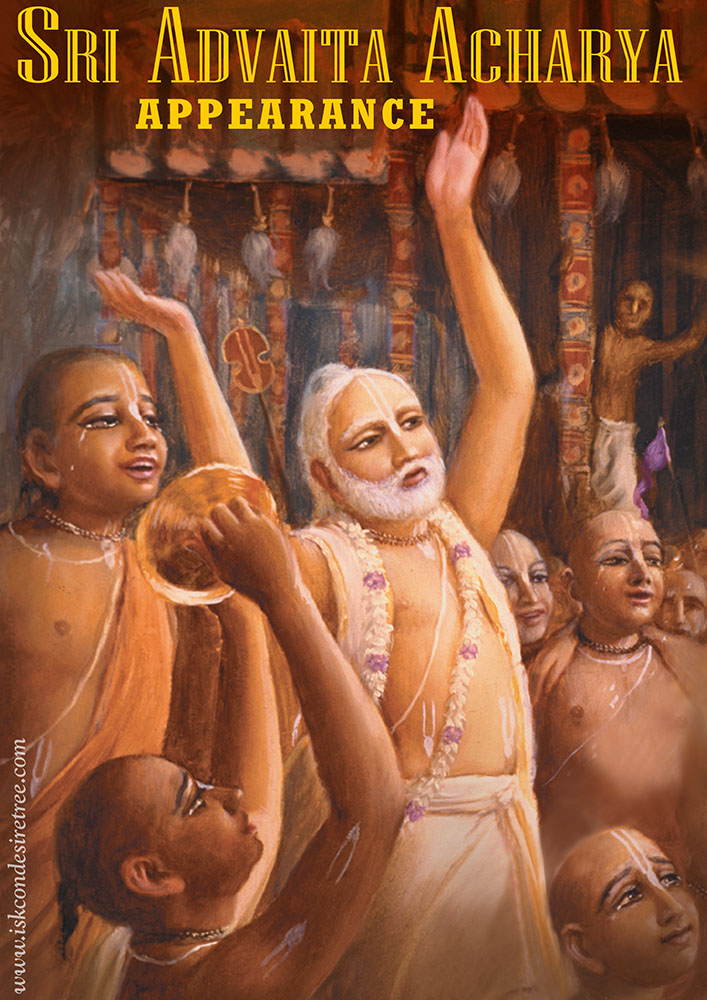On Sri Advaita Acarya’s appearance day, I share with you a talk about Him by His Divine Grace A. C. Bhaktivedanta Swami Prabhupada, given on April 6, 1975, in Mayapur, India.  —Giriraj Swami
—Giriraj Swami
advaitam harinadvaita
acaryam bhakti-samsana
bhaktavataram isam tam
advaita acaryam asraye
“Because He is nondifferent from Hari, the Supreme Lord, He is called Advaita, and because He propagates the cult of devotion, He is called Acarya. He is the Lord and the incarnation of the Lord’s devotee. Therefore I take shelter of Him.” (Sri Caitanya-caritamrta, Adi-lila, 1.13)
So, gradually the author is offering respect: sri-krsna-caitanya prabhu-nityananda sri-advaita. He has already offered respect to Lord Caitanya and Lord Nityananda. Now it is the turn for Sri Advaita Acarya. Advaitam: “nondifferent”—He is expansion of Maha-visnu. He is visnu-tattva. He is not jiva-tattva. Therefore He is Advaita. Advaitam acyutam anadim ananta-rupam. Krsna has got unlimited number of expansions—expansions, expansions of the expansions, and then expansions of the expansions, in this way. So Advaita Acarya is expansion of Krsna, as already explained. Therefore He is called advaitam. And acaryam bhakti-samsanat. This is the business of acarya: to spread bhakti cult. Acaryam mam vijaniyan navamanyeta karhicit. It is said by the Lord, “You should accept the acarya.” Acarya means one who transmits bhakti cult. Bhakti-samsanat, spreading—gosthy-anandi. One who is not spreading—he is cultivating Krsna consciousness for his personal benefit in a secluded place, sitting and chanting—that is also nice, but he’s not acarya. Acarya means he must spread—gosthy-anandi. Bhajananandi, gosthy-anandi. Generally, gosthy-anandi means one who wants to increase the number of devotees. He’s called gosthy-anandi. And one who is self-satisfied, that “Let me do my own duty,” he is called bhajananandi.
My guru maharaja, Bhaktisiddhanta Sarasvati Thakura, he was gosthy-anandi; he wanted to increase the number of devotees. And the more you increase the number of devotees, the more you become recognized by Krsna. It is Krsna’s business. Krsna personally comes as He is to spread this bhakti cult. Man-mana bhava mad-bhakto mad-yaji mam namaskuru. Sarva-dharman parityajya mam ekam saranam vraja. He’s canvassing personally.
paritranaya sadhunam
vinasaya ca duskrtam
dharma-samsthapanarthaya
sambhavami yuge yuge
“To deliver the pious and to annihilate the miscreants, as well as to reestablish the principles of religion, I Myself appear, millennium after millennium.” (Bg 4.8)
So, the same thing is entrusted to another devotee, who spreads—he’s acarya. So Krsna says, the acarya . . . Here it is said, advaitam harinadvaitad. Of course, Advaita Acarya is expansion of visnu-tattva, but any acarya, he is to be considered identical with the Lord. The Lord says that: acaryam mam vijaniyan—“One should understand the acarya.” Acaryam bhakti-samsanat. Acarya means one who is spreading the pure bhakti cult. “That acarya,” Krsna says, “you should consider such acarya as Myself.”
acaryam mam vijaniyan
navamanyeta karhicit
na martya-buddhyasuyeta
sarva-deva-mayo guruh
“One should know the acarya as Myself and never disrespect him in any way. One should not envy him, thinking him an ordinary man, for he is the representative of all the demigods.” (SB 11.17.27, Cc Adi 1.46).
You cannot consider, “Yes, he’s acarya, but not as good as Krsna.” No. Navamanyeta: don’t deride in that way. Then there will be falldown. Acaryam mam vijaniyan navamanyeta karhicit. And in the Vedas also it is said:
yasya deve para bhaktir
yatha deve tatha gurau
tasyaite kathita hy arthah
prakasante mahatmanah
“Only unto those great souls who have implicit faith in both the Lord and the spiritual master are all the imports of Vedic knowledge automatically revealed.” (SU 6.23) All the Vedic literature becomes revealed (prakasante) simply by these two principles.
Guru-krsna-prasade paya bhakti-lata-bija. We should not jump over to Krsna, without the help of guru. That is not possible. You must go through, because Krsna says, tasmad gurum prapadyeta jijnasuh sreya uttamam: “One who is actually serious to understand higher transcendental subject matter, he must approach guru.” Tasmad gurum prapadyeta. These are Vedic injunctions. Cakhu-dan dilo jei, janme janme prabhu sei. Anyone who opens . . . Guru means who opens the eyes of the ignorant person. Ajnana-timirandhasya jnananjana-salakaya—opening the eyes by giving real knowledge. Guru-krsna-prasade paya bhakti-lata-bija. The bhakti-lata, the seed of devotional service, can be received by the parampara system through a bona fide spiritual master. And if we abide by the orders of spiritual master faithfully, then Krsna becomes pleased. That is stated by Visvanatha Cakravarti Thakura: yasya prasadad bhagavat-prasadah. Ar na koriho mane asa—Narottama dasa. All the acaryas say like that.
Acaryavan puruso veda: “One who has accepted acarya, he knows things are they are.” Others, they do not know. It is not possible. So Advaita Acarya is the typical example how to become acarya. All are our acaryas: sri-krsna-caitanya prabhu-nityananda sri-advaita gadadhara srivasadi-gaura-bhakta-vrnda. All of them are acaryas because they are following the supreme acarya, Caitanya Mahaprabhu. Therefore they are acarya. Evam parampara-praptam imam rajarsayo viduh. So we have to follow the acarya. Then, when we are completely, cent percent, follower of acarya, then you can also act as acarya. This is the process. Don’t become premature acarya. First of all follow the orders of acarya and become mature. Then it is better to become acarya. We are interested in preparing acarya, but the etiquette is, at least for the period the guru is present, one should not become acarya.
Even if he is complete, he should not, because the etiquette is if somebody comes for becoming initiated, it is the duty of such person to bring that prospective candidate to his acarya, not that “Now people are coming to me, so I can become acarya.” That is avamanya. Navamanyeta karhicit. Don’t transgress this etiquette. Navamanyeta. That will be falldown. Just like during the lifetime of our guru maharaja, all our godbrothers who are now acting as acarya, they did not do so. That is not etiquette. Acaryam mam vijaniyan navamanyeta. That is insult. If you insult your acarya, then you are finished. Yasya prasadad bhagavat-prasado yasyaprasadan na gatih kuto ’pi—finished. If you displease your acarya, then you are finished. Therefore it is said—Caitanya Mahaprabhu says to all the acaryas . . . Nityananda Prabhu, Advaita Prabhu, and Srivasadi-gaura-bhakta-vrnda, they are all carriers of orders of Sri Caitanya Mahaprabhu.
So try to follow the path of acarya process. Then life will be successful. And to become acarya is not very difficult. First of all, become very faithful servant of your acarya: follow strictly what he says and try to please him and spread Krsna consciousness. That’s all. It is not at all difficult. Try to follow the instruction of your guru maharaja and spread Krsna consciousness. That is the order of Lord Caitanya. Amara ajnaya guru hana tara’ ei desa, yare dekha tare kaha ‘krsna’-upadesa: “By following My order, you become guru.” And if we strictly follow the acarya system and try our best to spread the instruction of Krsna . . . Yare dekha tare kaha ‘krsna’-upadesa. There are two kinds of krsna-upadesa. Upadesa means instruction. Instruction given by Krsna, that is krsna-upadesa, and instruction received about Krsna, that is also krsna-upadesa. Krsnasya upadesa iti krsna-upadesa. Samasa, sasti-tat-purusa-samasa. And krsna visaya upadesa, that is also Krsna upadesa. Bahu-vrihi-samasa. This is the way of analyzing Sanskrit grammar. So Krsna’s upadesa is Bhagavad-gita. He’s directly giving instruction.
So, those who are spreading krsna-upadesa, simply repeat what is said by Krsna. Then you become acarya. Not difficult at all. Everything is stated there. We have to simply repeat like parrot. Not exactly parrot. Parrot does not understand the meaning; he simply vibrates. But you should understand the meaning also. Otherwise, how you can explain? So, we want to spread Krsna consciousness. Simply prepare yourself how to repeat Krsna’s instructions very nicely, without any malinterpretation. Then, in future . . . Suppose now you have got ten thousand. We shall expand to hundred thousand. That is required. Then hundred thousand to million, and million to ten million.
Devotees: Jaya!
Srila Prabhupada: So there will be no scarcity of acarya, and people will understand Krsna consciousness very easily. So make that organization. Don’t be falsely puffed up. Follow the acarya’s instruction and try to make yourself perfect, mature. Then it will be very easy to fight maya. Yes, acaryas declare war against maya’s activities. Maya is instructing, “Here is wine, here is cigarette, here is that.” In your country these advertisements are very prominent—holding both ways, wine advertisement, cigarette advertisement, naked woman advertisement, and sometimes also gambling advertisement. What is that? Congo?
Devotees: Bingo.
Srila Prabhupada: Bingo. Yes. So this is maya. And our declaration of war against maya—no intoxication, no meat-eating, no bingo. This is our declaration of war. So we have to fight in that way, because nobody can understand Krsna without being free from all sinful activities. These are sinful activities. Therefore it is acarya’s business to stop these nonsense activities. Otherwise they’ll not be able to understand, especially the meat-eaters. They cannot understand.
nivrtta-tarsair upagiyamanad
bhavausadhac chrotra-mano-’bhiramat
ka uttamasloka-gunanuvadat
puman virajyeta vina pasughnat
“Glorification of the Supreme Personality of Godhead is performed in the parampara system; that is, it is conveyed from spiritual master to disciple. Such glorification is relished by those no longer interested in the false, temporary glorification of this cosmic manifestation. Descriptions of the Lord are the right medicine for the conditioned soul undergoing repeated birth and death. Therefore, who will cease hearing such glorification of the Lord except one who is killing animals or one who is killing his own self?” (SB 10.1.4)
Unless one is very expert in killing animals, he is not bereft of Krsna consciousness. That means one who is very expert in killing, he cannot understand. Therefore Christ also said, “Thou shall not kill”—the first business. Nobody will be able if one is a killer of animals, small or big—ultimately killer of his own children, killer of his own self. The killing process is so nice that it goes up to the point of killing one’s children. That is now happening. The killing business has so expanded that they are killing their own children. Just see the influence of Kali-yuga. The children take shelter of the father and mother, thinking very safe. Now, in this Kali-yuga, there is no safety even under the care of father and mother. Just see how this material civilization is progressing. Very, very dangerous. Kalau nasta-drsam. Therefore that Bhagavata verse is there:
krsne sva-dhamopagate
dharma-jnanadibhih saha
kalau nasta-drsam esa
puranarko ’dhunoditah
“This Bhagavata Purana is as brilliant as the sun, and it has arisen just after the departure of Lord Krsna to His own abode, accompanied by religion, knowledge, etc. Persons who have lost their vision due to the dense darkness of ignorance in the age of Kali shall get light from this Purana.”
Very, very abominable condition in this age of Kali—very, very. It is the beginning of Kali. Now we have to pass through 427,000 years. Kali-yuga will make progress in that way. And people are now practicing eating their children, and at the end of Kali there will be no food available. They’ll have to eat the children, like the snakes do. The snakes eat their own children. There are many animals who eat their own children. So don’t try to repeat your birth again and again in this Kali-yuga. It will be not very happy life. Better sacrifice everything in this life and be fully Krsna conscious and go back home, back to Godhead. Don’t wait for the next life. This is very seriously repeated, that “This life I shall finish my Krsna consciousness business.” And as it is stated in the Bhagavad-gita, Krsna consciousness business means to understand Krsna rightly. And He’s explaining Himself rightly. Where is the difficulty to finish the Krsna consciousness business? If Krsna is explaining Himself—what He is—then where is your difficulty? Krsna is explaining Himself in the Bhagavad-gita, Krsna is sending His representative acarya to teach you, and Krsna is within you trying to teach you, if you are actually serious. Then where is the difficulty? Inside, outside, all ways—books, knowledge—He is prepared.
So where is the difficulty to make yourself perfect in Krsna consciousness? There is no difficulty at all. Provided you are serious, you can become fully Krsna conscious in this very life.
 By Andrew Hallum
By Andrew Hallum By His Divine Grace A.C.Bhaktivedanta Swami Prabhupada
By His Divine Grace A.C.Bhaktivedanta Swami Prabhupada











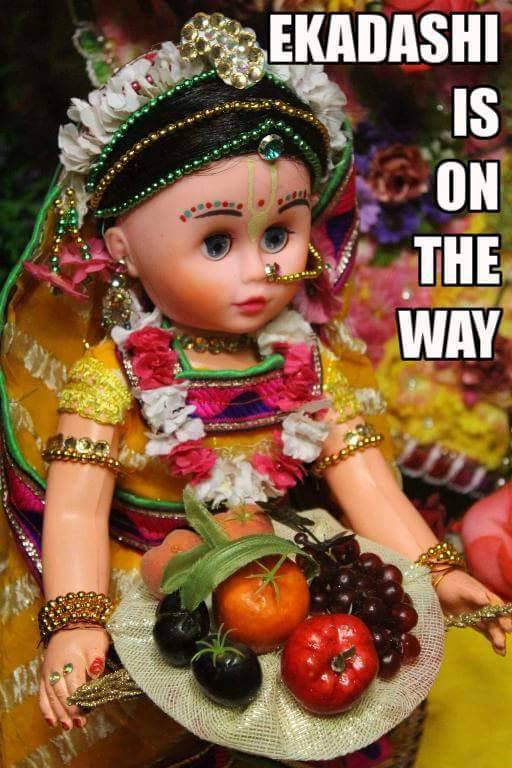 Bhaimi Ekadasi
Bhaimi Ekadasi Appearance Of Lord Nityananda
Appearance Of Lord Nityananda Adult Education At The Temple
Adult Education At The Temple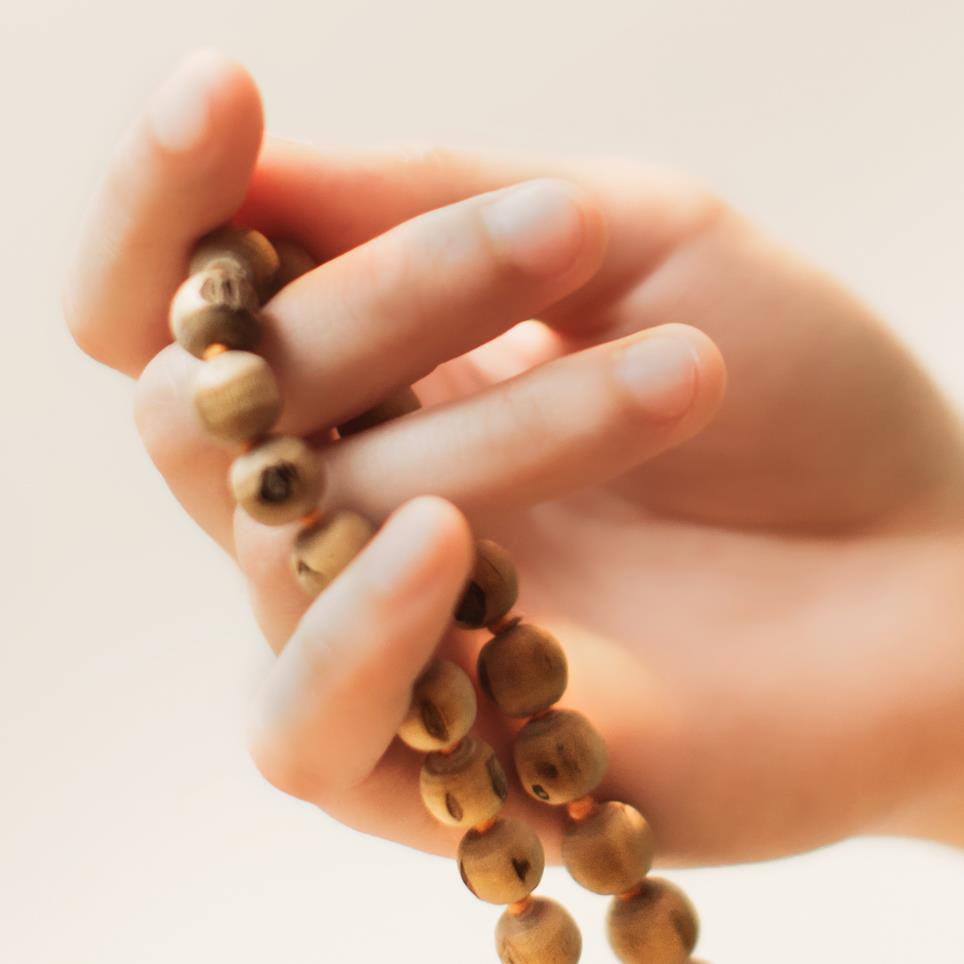 Japathon-Congregational Mantra Meditation
Japathon-Congregational Mantra Meditation Monthly sankirtan Festival(MSF)
Monthly sankirtan Festival(MSF) IB Vaishnavi Sanga
IB Vaishnavi Sanga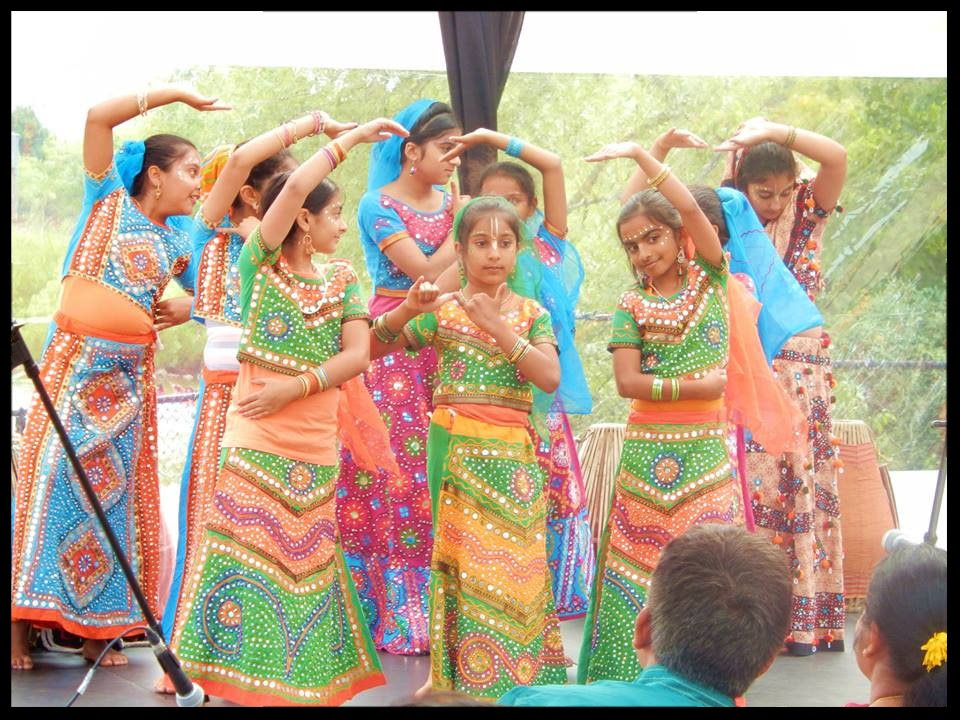
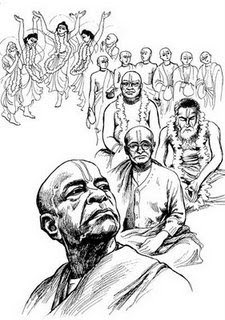 The Mentorship Program
The Mentorship Program








